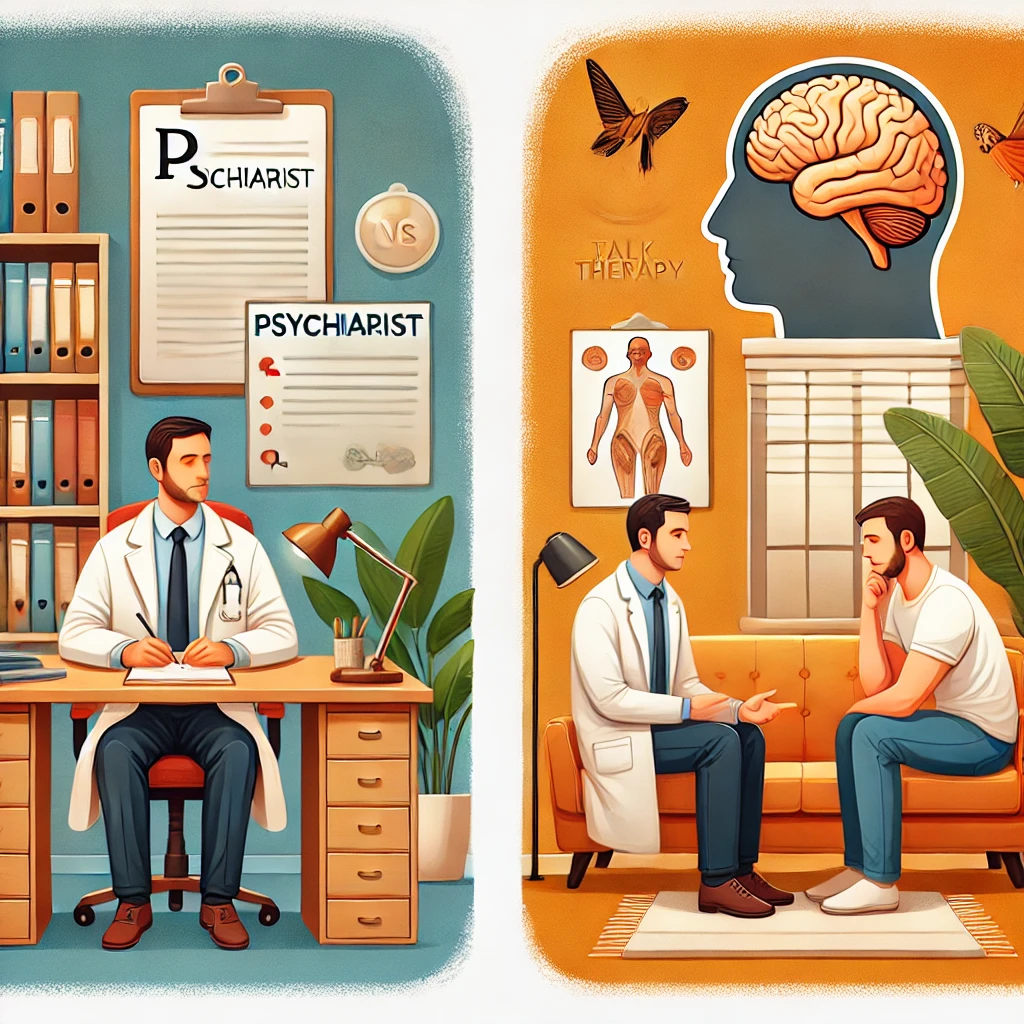When searching for mental health support, it's easy to get confused about the different types of professionals available. Just like when you're looking for physical therapy near me, finding the right mental health provider requires understanding their specific roles.
Psychiatrists and therapists both help with mental health issues, but they differ in important ways. Their training, approaches, and treatments vary significantly. This guide will clarify these differences to help you make informed choices about your mental health care.
Who is a Psychiatrist?
A psychiatrist is a medical doctor specializing in diagnosing, treating, and preventing mental illnesses. They have a medical degree and years of training in mental health. Since they are licensed physicians, they can prescribe medications and offer medical treatments for mental health disorders.
What Does a Psychiatrist Do?
Psychiatrists diagnose mental health conditions like depression, anxiety, schizophrenia, and bipolar disorder. They use medical tests and psychological evaluations to understand a patient’s condition. Their treatments often include:
- Prescribing medication
- Providing psychotherapy
- Offering lifestyle recommendations
- Monitoring treatment progress
A psychiatrist focuses on how brain chemistry, genetics, and physical health impact mental well-being. If you need medication or have a severe mental illness, a psychiatrist is the right choice.
Who is a Therapist?
A therapist is a broad term for professionals who provide talk therapy. This category includes psychologists, counselors, and social workers. Unlike psychiatrists, therapists do not have a medical degree and cannot prescribe medication.
What Does a Therapist Do?
Therapists help people manage emotional and mental challenges through different therapy methods. They provide a safe space for clients to express their thoughts and emotions. Common therapy techniques include:
- Cognitive Behavioral Therapy (CBT)
- Dialectical Behavior Therapy (DBT)
- Talk therapy
- Mindfulness techniques
Therapists work with individuals, couples, and families to address anxiety, stress, trauma, and relationship issues. They focus on changing thought patterns and behaviors for long-term mental health improvements.
Differences Between a Psychiatrist vs Therapist
Both psychiatrists and therapists support mental health, but their approaches differ. Here are the key differences:
1. Education and Training
- Psychiatrists have a medical degree and years of specialized training.
- Therapists hold degrees in psychology, counseling, or social work.
2. Treatment Methods
- Psychiatrists use medication and therapy.
- Therapists use talk therapy and behavioral techniques.
3. Prescription Power
- Psychiatrists can prescribe medication.
- Therapists cannot prescribe medication.
4. Focus Areas
- Psychiatrists treat severe mental health disorders with a medical approach.
- Therapists help with emotional and behavioral issues through therapy.
When to See a Psychiatrist vs a Therapist
Choosing between a psychiatrist and a therapist depends on your needs. If you have severe symptoms that require medication, a psychiatrist is the best option. If you need guidance to manage stress, anxiety, or relationship issues, a therapist can help.
You can also see both professionals at the same time. Many people take medication from a psychiatrist and attend therapy sessions for additional support.
Finding the Best Mental Health Support Near You
Searching for “best physical therapy near me” can also lead you to mental health professionals. Many therapy centers offer both physical and mental health services. Look for licensed professionals with good reviews and experience in treating your specific concerns.
Conclusion
Understanding the difference between a psychiatrist vs therapist can help you make the right choice for your mental well-being. Psychiatrists focus on medical treatments, while therapists provide talk therapy. Both play important roles in mental health care. If you’re searching for “physical therapy near me,” consider looking for a mental health professional to support your overall well-being.





Comments